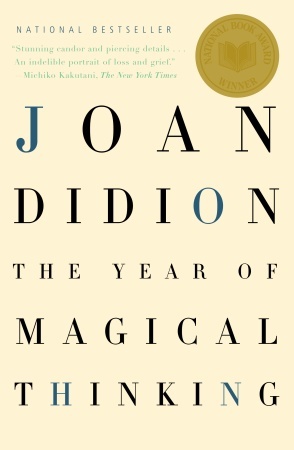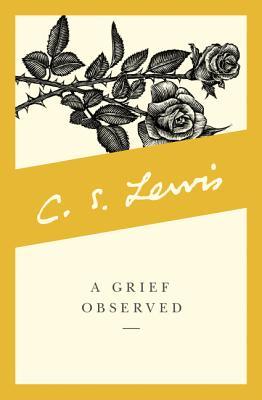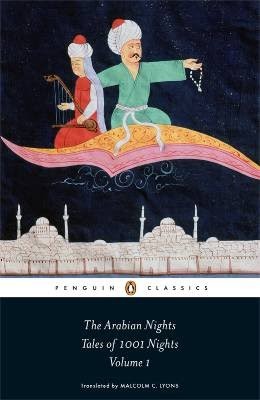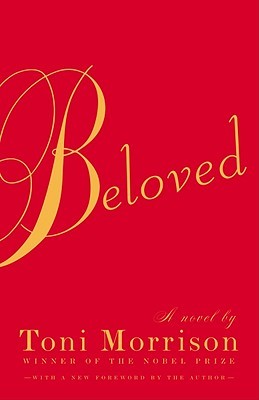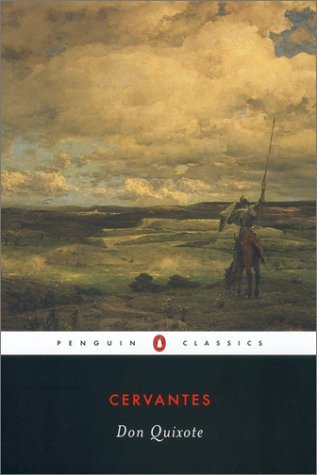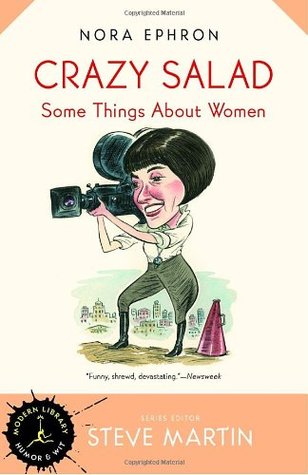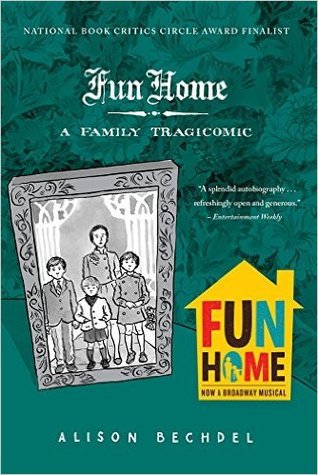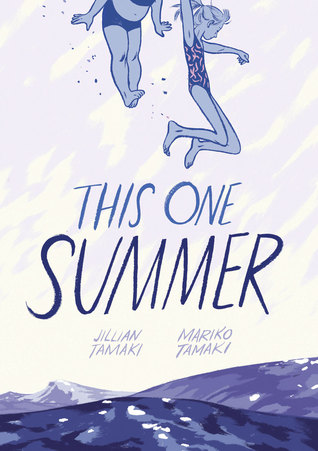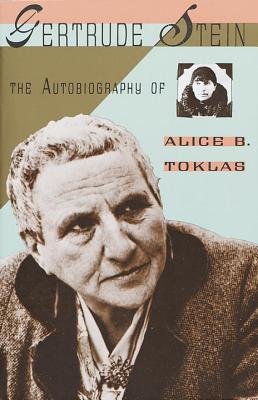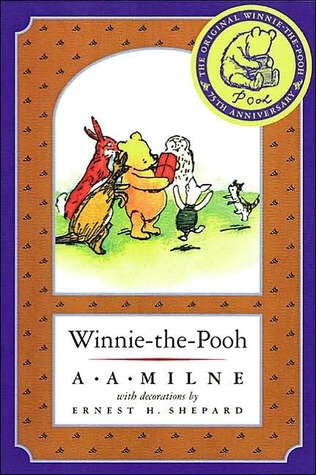Finding the 1,000 Books to Read in a Lifetime

We all have our reading bucket lists. James Mustich's 1,000 Books to Read Before You Die is bound to seriously expand that list with his recommendations that span across fiction, poetry, science and science fiction, memoir, travel writing, biography, children’s books, history, and more. We asked Mustich to tell us about these books, and he offered up plenty of inspiration for your Want to Read shelf.
A reader’s life is one long search query. This query runs constantly in the background, and its interface is ever-changing and often unexpected—sometimes we meet it in the form of a friend, other times in the form of a bookseller or a teacher. It can take the shape of a podcast or a book review, a well-organized library or a labyrinth of discarded volumes at a yard sale; it can be the front window of a bookshop or a display of thumbnail covers on this blog.
But no matter how many books we may already have going, new ones catch our eye, come up in conversation, get added to lists, accumulate in piles, all the while describing the happy game of browsing, recognition, and engagement that is, for many of us, a never-ending vocation.
But no matter how many books we may already have going, new ones catch our eye, come up in conversation, get added to lists, accumulate in piles, all the while describing the happy game of browsing, recognition, and engagement that is, for many of us, a never-ending vocation.
Fourteen years ago, I began work on a book that is a record of what I’ve discovered in my own quest, both for myself as a reader and on behalf of others as a bookseller, the occupation which has provided most of my employment through the past four decades. The book, 1,000 Books to Read Before You Die, will be published on October 2. As I write in its introduction, 1,000 Books is neither comprehensive nor authoritative; it is meant to be an invitation to a conversation—even a merry argument—about the books and authors that are missing as well as the books and authors included, because the question of what to read next is the best prelude to more important ones, like who to be, and how to live.
Search is a word, and a pursuit, that has lost in luster what it has gained in power in our digital age. Reflecting on the gestation of her 2012 novel, By Blood, Ellen Ullman wrote, “The characters in the story are searching for the truth in their pasts. I felt I had to reclaim the idea of search, tear it away from Google with its snippets of information. Search is an ancient trope, as old as Homer and the Greeks and the writings humans of the deep past have left for us…Search is a part of us, one of the desires evolution has woven into us over the eons, to keep us alive.�
As readers, of course, our search is always tantalizingly speculative. We look for narratives (“The act of narration never leaves us,� Ullman also writes) that illuminate our past and inform our present, or send us deep into imaginative worlds—each a timeless, elective future—that somehow allow us to better apprehend, cope with, or escape the demands of the real one that weigh us down.
The words of Ullman’s that I’ve quoted appear in her 2017 book, Life in Code: A Personal History of Technology. Published almost exactly one year ago as I type this sentence, Life in Code is the most recent book included in 1,000 Books to Read Before You Die.*[see footnote below]
If Ullman’s revelatory pondering of technology and experience is the newest work I consider, the most ancient is The Epic of Gilgamesh, encoded on clay tablets in Babylon something like a thousand years before The Iliad found its way into the world. Despite its antiquity, Gilgamesh’s tale echoes with the themes that still define the essence of our existence: life and death, love and fear, courage and duty, desire.
In between those two bookends, chronologically speaking, are 998 other books, each described in a brief essay that provides context and commentary. These essays are arranged by and large alphabetically by author, providing a sense of serendipity that conflates time, subject, and style in best book-hunting manner (my favorite example may be Cormac McCarthy’s The Road next to Robert McCloskey’s Make Way for Ducklings).
As the McCarthy-McCloskey juxtaposition suggests, 1,000 Books encompasses a reading life from early, simple pleasures (Goodnight Moon, A Hole Is to Dig) to later, complex sorrows (A Grief Observed, The Year of Magical Thinking). At its core is a wandering itinerary through literary culture, from Homer and Sappho to George Eliot and Elizabeth Bishop; from Virgil and Dante to The Arabian Nights; from The Canterbury Tales and The Decameron to Shakespeare, Montaigne, and Cervantes; from Austen to Dickens to Gabriel GarcĂa Márquez and Toni Morrison; from Ralph Waldo Emerson to James Baldwin, Walt Whitman to Claudia Rankine; from Aeschylus to Zadie Smith, Émile Zola to Ali Smith.
It’s not a survey course in literature, although one could easily trace one through its entries, just as one could also map a journey in ideas from Plato to Darwin to Simone de Beauvoir, or in religious thinking from Saint Augustine to Simone Weil, or in diaries from Samuel Pepys to Sarah Manguso.
Whatever route through my pages readers might set out on, they’ll find digressions in every direction. They’ll stumble across books about insects, fish, and race horses, and mysteries by Wilkie Collins and Agatha Christie, Raymond Chandler, and Rex Stout, P. D. James, and Donna Leon. There are perspectives on revolutions political and scientific, and profound thoughts on food as well as philosophy.
Volumes for young readers include Robert Louis Stevenson’s A Child’s Garden of Verses and A. A. Milne’s Winnie-the-Pooh, Natalie Babbitt’s Tuck Everlasting and Russell Hoban’s The Mouse and His Child (to my mind, one of the most eloquent novels of the 20th century, without qualification of age or anything else), and the adventures of Nancy Drew and Harry Potter.
There are comic stylists (Nora Ephron, Machado de Assis, P. G. Wodehouse) and comics artists (Alison Bechdel, Art Spiegelman, Jillian Tamaki). Stories are told without regard to length (Lady Murasaki’s The Tale of Genji, Victor Hugo’s Les Misérables) and with great precision (Yasunari Kawabata’s Palm-of-the-Hand Stories, the Selected Stories by Alice Munro). Lives are examined with a biographer’s attention (Jean Strouse’s Alice James, David McCullough’s Truman) or recollected with a memoirist’s élan (Gertrude Stein’s The Autobiography of Alice B. Toklas, Mary Karr’s The Liars� Clubs, Richard Rodriguez’s Hunger of Memory).
Especially intriguing are works often tagged as historical oddities that should be monuments: The Book of the City of Ladies by Christine de Pizan and Corinne, or Italy by Madame de Staël come to mind. Writers whose influence both define and explode genres�Georgette Heyer, Stanislaw Lem, Stephen King—are also in attendance. What I hope my book delivers, in the 1,000 books I’ve written about directly and the thousands of others referenced in the text and in the endnotes to each entry, is what Edmund Wilson once called “the miscellaneous learning of the bookstore, unorganized by any larger purpose, the undisciplined undirected curiosity of the indolent lover of reading.�
Although my choice of books has been informed across decades by the generosity of other readers in the guise of teachers, friends, work colleagues, literary collaborators, correspondents, customers, and acquaintances (once people know you are writing a book called 1,000 Books to Read Before You Die, you can never enjoy a dinner party in the same way again!), it is in the end mine and, as such, personal and sometimes peculiar. More than a few of my selections may strike any other reader as arguable, and some may provoke you to exclaim, “Are you kidding me?� And just as I hope you’ll be inspired to track your own reading against the list of books I’ve written about, I know for certain that you’ll be making a list of all the books you love that I’ve left out. That’s a list I’d love to see as I search for my next one thousand books to read.
*The search goes on: If 1,000 Books wasn't already being printed, I’d do my best to find room for Richard Powers� new novel, The Overstory, and Jill Lepore’s forthcoming history of the United States, These Truths, two terrific books I’ve been reading this summer.
Search is a word, and a pursuit, that has lost in luster what it has gained in power in our digital age. Reflecting on the gestation of her 2012 novel, By Blood, Ellen Ullman wrote, “The characters in the story are searching for the truth in their pasts. I felt I had to reclaim the idea of search, tear it away from Google with its snippets of information. Search is an ancient trope, as old as Homer and the Greeks and the writings humans of the deep past have left for us…Search is a part of us, one of the desires evolution has woven into us over the eons, to keep us alive.�
As readers, of course, our search is always tantalizingly speculative. We look for narratives (“The act of narration never leaves us,� Ullman also writes) that illuminate our past and inform our present, or send us deep into imaginative worlds—each a timeless, elective future—that somehow allow us to better apprehend, cope with, or escape the demands of the real one that weigh us down.
The words of Ullman’s that I’ve quoted appear in her 2017 book, Life in Code: A Personal History of Technology. Published almost exactly one year ago as I type this sentence, Life in Code is the most recent book included in 1,000 Books to Read Before You Die.*[see footnote below]
If Ullman’s revelatory pondering of technology and experience is the newest work I consider, the most ancient is The Epic of Gilgamesh, encoded on clay tablets in Babylon something like a thousand years before The Iliad found its way into the world. Despite its antiquity, Gilgamesh’s tale echoes with the themes that still define the essence of our existence: life and death, love and fear, courage and duty, desire.
In between those two bookends, chronologically speaking, are 998 other books, each described in a brief essay that provides context and commentary. These essays are arranged by and large alphabetically by author, providing a sense of serendipity that conflates time, subject, and style in best book-hunting manner (my favorite example may be Cormac McCarthy’s The Road next to Robert McCloskey’s Make Way for Ducklings).
As the McCarthy-McCloskey juxtaposition suggests, 1,000 Books encompasses a reading life from early, simple pleasures (Goodnight Moon, A Hole Is to Dig) to later, complex sorrows (A Grief Observed, The Year of Magical Thinking). At its core is a wandering itinerary through literary culture, from Homer and Sappho to George Eliot and Elizabeth Bishop; from Virgil and Dante to The Arabian Nights; from The Canterbury Tales and The Decameron to Shakespeare, Montaigne, and Cervantes; from Austen to Dickens to Gabriel GarcĂa Márquez and Toni Morrison; from Ralph Waldo Emerson to James Baldwin, Walt Whitman to Claudia Rankine; from Aeschylus to Zadie Smith, Émile Zola to Ali Smith.
It’s not a survey course in literature, although one could easily trace one through its entries, just as one could also map a journey in ideas from Plato to Darwin to Simone de Beauvoir, or in religious thinking from Saint Augustine to Simone Weil, or in diaries from Samuel Pepys to Sarah Manguso.
Whatever route through my pages readers might set out on, they’ll find digressions in every direction. They’ll stumble across books about insects, fish, and race horses, and mysteries by Wilkie Collins and Agatha Christie, Raymond Chandler, and Rex Stout, P. D. James, and Donna Leon. There are perspectives on revolutions political and scientific, and profound thoughts on food as well as philosophy.
Volumes for young readers include Robert Louis Stevenson’s A Child’s Garden of Verses and A. A. Milne’s Winnie-the-Pooh, Natalie Babbitt’s Tuck Everlasting and Russell Hoban’s The Mouse and His Child (to my mind, one of the most eloquent novels of the 20th century, without qualification of age or anything else), and the adventures of Nancy Drew and Harry Potter.
There are comic stylists (Nora Ephron, Machado de Assis, P. G. Wodehouse) and comics artists (Alison Bechdel, Art Spiegelman, Jillian Tamaki). Stories are told without regard to length (Lady Murasaki’s The Tale of Genji, Victor Hugo’s Les Misérables) and with great precision (Yasunari Kawabata’s Palm-of-the-Hand Stories, the Selected Stories by Alice Munro). Lives are examined with a biographer’s attention (Jean Strouse’s Alice James, David McCullough’s Truman) or recollected with a memoirist’s élan (Gertrude Stein’s The Autobiography of Alice B. Toklas, Mary Karr’s The Liars� Clubs, Richard Rodriguez’s Hunger of Memory).
Especially intriguing are works often tagged as historical oddities that should be monuments: The Book of the City of Ladies by Christine de Pizan and Corinne, or Italy by Madame de Staël come to mind. Writers whose influence both define and explode genres�Georgette Heyer, Stanislaw Lem, Stephen King—are also in attendance. What I hope my book delivers, in the 1,000 books I’ve written about directly and the thousands of others referenced in the text and in the endnotes to each entry, is what Edmund Wilson once called “the miscellaneous learning of the bookstore, unorganized by any larger purpose, the undisciplined undirected curiosity of the indolent lover of reading.�
Although my choice of books has been informed across decades by the generosity of other readers in the guise of teachers, friends, work colleagues, literary collaborators, correspondents, customers, and acquaintances (once people know you are writing a book called 1,000 Books to Read Before You Die, you can never enjoy a dinner party in the same way again!), it is in the end mine and, as such, personal and sometimes peculiar. More than a few of my selections may strike any other reader as arguable, and some may provoke you to exclaim, “Are you kidding me?� And just as I hope you’ll be inspired to track your own reading against the list of books I’ve written about, I know for certain that you’ll be making a list of all the books you love that I’ve left out. That’s a list I’d love to see as I search for my next one thousand books to read.
*The search goes on: If 1,000 Books wasn't already being printed, I’d do my best to find room for Richard Powers� new novel, The Overstory, and Jill Lepore’s forthcoming history of the United States, These Truths, two terrific books I’ve been reading this summer.
James Mustich's 1,000 Books to Read Before You Die will be available on October 2. Add it to your
Want to Read shelf here.
Do you have a reading bucket list? Share it with us in the comments!
Check out more recent :
The Most Beloved WWII Novels of the Last Decade
Exclusive Excerpt: Reese Witherspoon's Lifelong Love of Books
24 Highly Rated New Paperback Releases
Do you have a reading bucket list? Share it with us in the comments!
Check out more recent :
The Most Beloved WWII Novels of the Last Decade
Exclusive Excerpt: Reese Witherspoon's Lifelong Love of Books
24 Highly Rated New Paperback Releases
Comments Showing 1-50 of 52 (52 new)
message 1:
by
Martin
(new)
Sep 24, 2018 07:19AM
 Aaargh! Another one - after 1001 Books You Must Read Before You Die (ed. Peter Boxall) from the 1001 series and 1001 Books for every mood (eds. Hallie Ephron and Susan Stamberg). From the highlights in the blog, it looks like there are overlaps otherwise I'm just not going to make it!!
Aaargh! Another one - after 1001 Books You Must Read Before You Die (ed. Peter Boxall) from the 1001 series and 1001 Books for every mood (eds. Hallie Ephron and Susan Stamberg). From the highlights in the blog, it looks like there are overlaps otherwise I'm just not going to make it!!
flag
 No matter how fun it is, it's kind of hard to take any of these lists seriously, as they are highly biased and dependant on what the editor has read in his/her lifetime. I think you have to read close to a million books to be able to narrow them down to a thousand that is relatively representational of all the great books out there.
No matter how fun it is, it's kind of hard to take any of these lists seriously, as they are highly biased and dependant on what the editor has read in his/her lifetime. I think you have to read close to a million books to be able to narrow them down to a thousand that is relatively representational of all the great books out there.
 Andrea wrote: "No matter how fun it is, it's kind of hard to take any of these lists seriously, as they are highly biased and dependant on what the editor has read in his/her lifetime. I think you have to read cl..."
Andrea wrote: "No matter how fun it is, it's kind of hard to take any of these lists seriously, as they are highly biased and dependant on what the editor has read in his/her lifetime. I think you have to read cl..."I agree. These lists should be called, �1001 Books I Think You Should Read� because that’s really what it is. It’s a recommendation, not by any means a definitive list. To his credit, the author does give a disclaimer along those lines towards the beginning of this blogitorial when he said that the list came from his own personal experiences/observations and that his list is “neither comprehensive nor authoritative� and that it is to be used as a tool to help people decide what to read next.
 The question is: How should we read? “Read not to contradict and confute; nor to believe and take for granted; nor to find talk and discourse; but to weigh and consider. Some books are to be tasted, others to be swallowed, and some few to be chewed and digested: that is, some books are to be read only in parts, others to be read, but not curiously, and some few to be read wholly, and with diligence and attention.� (Francis Bacon, The Essays)
The question is: How should we read? “Read not to contradict and confute; nor to believe and take for granted; nor to find talk and discourse; but to weigh and consider. Some books are to be tasted, others to be swallowed, and some few to be chewed and digested: that is, some books are to be read only in parts, others to be read, but not curiously, and some few to be read wholly, and with diligence and attention.� (Francis Bacon, The Essays)
 You know what I dislike about all these "before you die" lists? They create a false sense of obligation and "should-ness" that if you don't jump on the bandwagon and do all these things they suggest, you're throwing away your life. Does our culture lack imagination to the degree we can't make our own to-do lists anymore?
You know what I dislike about all these "before you die" lists? They create a false sense of obligation and "should-ness" that if you don't jump on the bandwagon and do all these things they suggest, you're throwing away your life. Does our culture lack imagination to the degree we can't make our own to-do lists anymore? Also, they're usually written by affluent white men to show off how (supposedly) erudite they are, and I've had quite enough of old rich white guys deciding what everyone "should" do, believe, read, see, know for one lifetime.
 no idea why anyone is trying to tell anyone else what books they should read, ever... idea: worry about what YOU want to read, read what YOU want to read, tell people about what YOU read, and that's it...
no idea why anyone is trying to tell anyone else what books they should read, ever... idea: worry about what YOU want to read, read what YOU want to read, tell people about what YOU read, and that's it...
 Aubrey wrote: "Wake me up when someone's published '1,000 Books by Women of Color to Read Before You Die'."
Aubrey wrote: "Wake me up when someone's published '1,000 Books by Women of Color to Read Before You Die'."LOVE IT!!!
 James wrote: "no idea why anyone is trying to tell anyone else what books they should read, ever... idea: worry about what YOU want to read, read what YOU want to read, tell people about what YOU read, and that'..."
James wrote: "no idea why anyone is trying to tell anyone else what books they should read, ever... idea: worry about what YOU want to read, read what YOU want to read, tell people about what YOU read, and that'..."Yes! 100%
 Andrea wrote: "No matter how fun it is, it's kind of hard to take any of these lists seriously, as they are highly biased and dependant on what the editor has read in his/her lifetime. I think you have to read cl..."
Andrea wrote: "No matter how fun it is, it's kind of hard to take any of these lists seriously, as they are highly biased and dependant on what the editor has read in his/her lifetime. I think you have to read cl..."I agree with you completely.
There are good lists out there, but I often look at them more as guide lines/recommendations, though I am plugging through Besides the Bible (a 100 book list) recommended for Evangelical Christians and published by IVP. What is interesting about that list; a good chunk of the books are not even by Christian authors.
 Aside from the list being slanted toward the Liberal and PC ideology, this is another book written by a white guy about what books are worth the read. I pass on this dribble. Also, I have already read over 1,200 books so I do ot need to read what somebody else likes to read.
Aside from the list being slanted toward the Liberal and PC ideology, this is another book written by a white guy about what books are worth the read. I pass on this dribble. Also, I have already read over 1,200 books so I do ot need to read what somebody else likes to read.
 Calvinist wrote: "No Sanderson? Whelp, this book is already outdated. :)"
Calvinist wrote: "No Sanderson? Whelp, this book is already outdated. :)"Can people stop talking about the supremacy of Sanderson he's not even a good author.
 Charles wrote: "Calvinist wrote: "No Sanderson? Whelp, this book is already outdated. :)"
Charles wrote: "Calvinist wrote: "No Sanderson? Whelp, this book is already outdated. :)"Can people stop talking about the supremacy of Sanderson he's not even a good author."
Someone says the same about all the greats.
 Aron124 wrote: "There are good lists out there, but I often look at them more as guide lines/recommendations, though I am plugging through Besides the Bible (a 100 book list) recommended for Evangelical Christians..."
Aron124 wrote: "There are good lists out there, but I often look at them more as guide lines/recommendations, though I am plugging through Besides the Bible (a 100 book list) recommended for Evangelical Christians..."I really reco Karen Swallow Prior's "On Reading Well". She goes through recommending a bunch of classics and showing ow to read them better and how to learn from them. Wonderful (and Christian!) book.
 Calvinist wrote: "Charles wrote: "Calvinist wrote: "No Sanderson? Whelp, this book is already outdated. :)"
Calvinist wrote: "Charles wrote: "Calvinist wrote: "No Sanderson? Whelp, this book is already outdated. :)"Can people stop talking about the supremacy of Sanderson he's not even a good author."
Someone says the s..."
Really find me someone who thinks shakespeare is shit.
 Aron124 wrote: "There are good lists out there, but I often look at them more as guide lines/recommendations, though I am plugging through Besides the Bible (a 100 book list) recommended for Evangelical Christians..."
Aron124 wrote: "There are good lists out there, but I often look at them more as guide lines/recommendations, though I am plugging through Besides the Bible (a 100 book list) recommended for Evangelical Christians..."Can you share a link to this list you mentioned?
 Charles wrote: "Calvinist wrote: "Charles wrote: "Calvinist wrote: "No Sanderson? Whelp, this book is already outdated. :)"
Charles wrote: "Calvinist wrote: "Charles wrote: "Calvinist wrote: "No Sanderson? Whelp, this book is already outdated. :)"Can people stop talking about the supremacy of Sanderson he's not even a good author."
..."
Actually it's not nearly as uncommon as you think. I've read the same claim in multiple sources at this point, from historians and theatrologists, that Shakespeare was far from the most impressive or cutting edge dramatist of his time. That he in fact endured for so long precisely because his plays were simplistic, bawdy, and appealed to the lowest common denominator. Sort of like the Family Guy of the 1500s, I guess. I'm far from an expert on the subject, but I wouldn't be surprised if there's some truth to that.
 David wrote: "Charles wrote: "Calvinist wrote: "Charles wrote: "Calvinist wrote: "No Sanderson? Whelp, this book is already outdated. :)"
David wrote: "Charles wrote: "Calvinist wrote: "Charles wrote: "Calvinist wrote: "No Sanderson? Whelp, this book is already outdated. :)"Can people stop talking about the supremacy of Sanderson he's not even a..."
I knew as soon as I posted it that it was a mistake.
I thought shakespeare always had two plots going in each play, one for the commons and one in case anyone who wanted more to show up.
 Aubrey wrote: "Wake me up when someone's published '1,000 Books by Women of Color to Read Before You Die'."
Aubrey wrote: "Wake me up when someone's published '1,000 Books by Women of Color to Read Before You Die'."What's stopping you... aside from evident narcolepsy?
 Jaime wrote: "Aside from the list being slanted toward the Liberal and PC ideology...."
Jaime wrote: "Aside from the list being slanted toward the Liberal and PC ideology...."Seriously? Most of it seems to be bog standard classics and a few popular fiction works, with some more recent literary fiction thrown in for tone. If you can infer "Liberal and PC ideology" from that, then perhaps your antennae are a little bit oversensitive. How "liberal" do you have to be to recommend Gilgamesh, The Iliad, Don Quixote, and Middlemarch?
At this rate, one wonders what one would have to recommend to free oneself from the suspicion of liberalism. Thomas Dixon's The Clansman, perhaps?
Of course all these lists are biased. I am sure there are only two or three books written in Spanish in that list. One is Don Quixote, and I suppose there's some South American writer (Gabriel GarcĂa Márquez), and that's all. There have been many many good books written in Spain since Cervantes, do you know? Unamuno, PĂ©rez GaldĂłs, ClarĂn, Delibes, etcetera.
 Yaaresse wrote: "You know what I dislike about all these "before you die" lists? They create a false sense of obligation and "should-ness" that if you don't jump on the bandwagon and do all these things they sugges..."
Yaaresse wrote: "You know what I dislike about all these "before you die" lists? They create a false sense of obligation and "should-ness" that if you don't jump on the bandwagon and do all these things they sugges..."I have to agree with you!
 I am surprised to see, An infamous Army by Georgette Heyer.
I am surprised to see, An infamous Army by Georgette Heyer. You may have liked it, but sorry, not every reader has a same taste.
 Aubrey wrote: "Wake me up when someone's published '1,000 Books by Women of Color to Read Before You Die'."
Aubrey wrote: "Wake me up when someone's published '1,000 Books by Women of Color to Read Before You Die'."Aubrey,
Please wake up dear. I want YOU to write it and get it published. The world needs it, and we know as women that if we want something done then we need to do it ourselves. I would buy it in a heartbeat, but as a white woman I am not at all qualified to compile a list. I have several favorites sure to be on such a list, but I know there are far more out there for me to read.
What a fabulous idea!
Valerie
 The Just-About-Cocky Ms M wrote: "I generally have fun with these Ĺ·±¦ÓéŔÖ blogs telling us all what books we need to read before we die in order to be fulfilled, erudite, and worthwhile folks, the "Most Beloved" [fill in the blan..."
The Just-About-Cocky Ms M wrote: "I generally have fun with these Ĺ·±¦ÓéŔÖ blogs telling us all what books we need to read before we die in order to be fulfilled, erudite, and worthwhile folks, the "Most Beloved" [fill in the blan..."I agree wholeheartedly. We seem to be over informed with other's choices of the best or must reads - such as the Great American Read on PBS.
 ELDEE wrote: "We seem to be over informed with other's choices of the best or must reads - such as the Great American Read on PBS."
ELDEE wrote: "We seem to be over informed with other's choices of the best or must reads - such as the Great American Read on PBS."In defense of the Great American Read, they don't present it as a "must-read" list or a list of the "best" books � though this has been subsequently misunderstood as such by other lit sites � but merely an attempt to find out what the most popular books for American readers are. It's basically a U. S. version of the BBC's Big Read. I don't think the Great American Read should be held responsible for what other people falsely infer from it.
 to read 1000 books you will need to read something like a book per week for twenty years. Seems a little extreme to be honest.
to read 1000 books you will need to read something like a book per week for twenty years. Seems a little extreme to be honest.
 I always take these kinds of lists with a pinch of salt. They’re so highly subjective. I love my TBR list because it’s MY TBR list, loving created to reflect my own likes and loves and is distinctly unique to me. It will always be huge, and probably never finished, but I love it because of that. It evolves with me.
I always take these kinds of lists with a pinch of salt. They’re so highly subjective. I love my TBR list because it’s MY TBR list, loving created to reflect my own likes and loves and is distinctly unique to me. It will always be huge, and probably never finished, but I love it because of that. It evolves with me.
 Wow, que é tão calmo! Lembro-me de ler um livro em um dia durante quase alguns anos! Foi um tempo interessante... A propósito, encontrei recentemente o pros e trapacear desta espécie da leitura em . Esperança, vai como ele e junta a equipe "Um livro por dia"!
Wow, que é tão calmo! Lembro-me de ler um livro em um dia durante quase alguns anos! Foi um tempo interessante... A propósito, encontrei recentemente o pros e trapacear desta espécie da leitura em . Esperança, vai como ele e junta a equipe "Um livro por dia"!
 Aubrey wrote: "Wake me up when someone's published '1,000 Books by Women of Color to Read Before You Die'."
Aubrey wrote: "Wake me up when someone's published '1,000 Books by Women of Color to Read Before You Die'."That sounds like it just might be a rather biased and racist list, eh?
 I never tell anyone what they SHOULD read, but I highly recommend some books, e.g. "The Magic Mountain" (Der Zauberberg" by Thomas Mann, "Man's Search For Meaning" by Viktor Frankyl, M.D. "Middle March" by George Eliot," "Run Silent Run Deep:, by Commander Edward Beech, "Crime and Punishment" by Fydor Destoyeski, and anything by P.G. Wodehouse, and anything by E. B. White. That's just the beginning. Bob Foy.
I never tell anyone what they SHOULD read, but I highly recommend some books, e.g. "The Magic Mountain" (Der Zauberberg" by Thomas Mann, "Man's Search For Meaning" by Viktor Frankyl, M.D. "Middle March" by George Eliot," "Run Silent Run Deep:, by Commander Edward Beech, "Crime and Punishment" by Fydor Destoyeski, and anything by P.G. Wodehouse, and anything by E. B. White. That's just the beginning. Bob Foy.
 Charles wrote: "Calvinist wrote: "No Sanderson? Whelp, this book is already outdated. :)"
Charles wrote: "Calvinist wrote: "No Sanderson? Whelp, this book is already outdated. :)"Can people stop talking about the supremacy of Sanderson he's not even a good author."
You're right, he's not.
 One of my favorite short stories is by Bryan Minnes. It is the first of many and I'm looking forward to reading more short stories by this author one day hopefully as well. Anyway it is titled: "Beginning My Life Journey: An Inquiry about How I Got Here" /book/show/2...
One of my favorite short stories is by Bryan Minnes. It is the first of many and I'm looking forward to reading more short stories by this author one day hopefully as well. Anyway it is titled: "Beginning My Life Journey: An Inquiry about How I Got Here" /book/show/2...
 I agree that this book is obviously biased: very (white) American, a bit European, but the rest seems to be forgotten. A group would do it better, but anyhow I´m old enough to read what interests me or entertains me, sometimes getting tips from others, but no canon!
I agree that this book is obviously biased: very (white) American, a bit European, but the rest seems to be forgotten. A group would do it better, but anyhow I´m old enough to read what interests me or entertains me, sometimes getting tips from others, but no canon!
 The Just-About-Cocky Ms M wrote: "Who is Sanderson?"
The Just-About-Cocky Ms M wrote: "Who is Sanderson?"Epic fantasy writer. Just read this book. It will clear the confusion: The Final Empire
 Well - chances are I won't buy this book but this is just a small suggestion who said (I paraphrase): read what you want and enjoy: like many here I've read several thousand books (enjoyed a lot of them) but I *do* tend to buy books based on what I've enjoyed *so far*. Maybe I've missed a lot of enjoyment by not looking further afield. Maybe, just maybe, having someone else's list might just let me discover even more enjoyment in places I would have never thought to look.
Well - chances are I won't buy this book but this is just a small suggestion who said (I paraphrase): read what you want and enjoy: like many here I've read several thousand books (enjoyed a lot of them) but I *do* tend to buy books based on what I've enjoyed *so far*. Maybe I've missed a lot of enjoyment by not looking further afield. Maybe, just maybe, having someone else's list might just let me discover even more enjoyment in places I would have never thought to look.
 I'd say, make your own list. Life is too short to reed books you don't like. Reading a book just because "everybody" thinks it's a "classic, must read" is probably the worst reason to read a book. You'll probably be forced to read "must read" books in school to last you a life time...
I'd say, make your own list. Life is too short to reed books you don't like. Reading a book just because "everybody" thinks it's a "classic, must read" is probably the worst reason to read a book. You'll probably be forced to read "must read" books in school to last you a life time...
 Pat B. Playing with your dog is never a waste of time. It will not be around forever. Your books will. When your dog is gone, you're going to miss it, forever.
Pat B. Playing with your dog is never a waste of time. It will not be around forever. Your books will. When your dog is gone, you're going to miss it, forever.
 SEEKING GILGAMESH
SEEKING GILGAMESH"A reader’s life is one long search query."
I had once thought and asked, if we were living only for writing a life story from our personal experience records.
Life can be a seek for finding the most special book connecting a reader or writer to The Universe. It can be a good idea to start the search with Gilgamesh and Iliad.
"Is our only purpose for living, writing a story of life?
"Acaba yaşamamızın tek nedeni, bir yaşam öyküsü yazabilmek mi?"
"
 Did the people who are criticizing about the 'should-ness', white guys telling us what to do, or that the list is biased even read the article? The blog already comments about exactly that (minus explicit comment about his gender and race).
Did the people who are criticizing about the 'should-ness', white guys telling us what to do, or that the list is biased even read the article? The blog already comments about exactly that (minus explicit comment about his gender and race). Yes, the title of the book is quite 'clickbait-y', but in spirit I don't think the author is intending to tell anyone what to do or implying that this is the comprehensive list. He is quite clear that we can all make our own lists and just use his book as reference.
"As I write in its introduction, 1,000 Books is neither comprehensive nor authoritative; it is meant to be an invitation to a conversation—even a merry argument—about the books and authors that are missing as well as the books and authors included...it is in the end mine and, as such, personal and sometimes peculiar. More than a few of my selections may strike any other reader as arguable, and some may provoke you to exclaim, “Are you kidding me?� And just as I hope you’ll be inspired to track your own reading against the list of books I’ve written about, I know for certain that you’ll be making a list of all the books you love that I’ve left out. That’s a list I’d love to see as I search for my next one thousand books to read."
 Sarina wrote: "Andrea wrote: "No matter how fun it is, it's kind of hard to take any of these lists seriously, as they are highly biased and dependant on what the editor has read in his/her lifetime. I think you ..."
Sarina wrote: "Andrea wrote: "No matter how fun it is, it's kind of hard to take any of these lists seriously, as they are highly biased and dependant on what the editor has read in his/her lifetime. I think you ..."As he said in the blog, the book is meant to be a conversation starter and not to be a definitive list. He is definitely starting those conversations!
 I think a lot of people have really jumped the gun with their opinions about this book. I own this book and it is like a treasure box of suggestions. There is absolutely no indication that one “must� read anything. He makes that quite clear. There is a wonderful mix of books from many genres and time periods and a very interesting write up about each one that explains the significance of the book . I just love browsing through it and have added many interesting titles to my TBR. I’m not sure why it would stir up so many of the defensive feelings that I see in the comments.
I think a lot of people have really jumped the gun with their opinions about this book. I own this book and it is like a treasure box of suggestions. There is absolutely no indication that one “must� read anything. He makes that quite clear. There is a wonderful mix of books from many genres and time periods and a very interesting write up about each one that explains the significance of the book . I just love browsing through it and have added many interesting titles to my TBR. I’m not sure why it would stir up so many of the defensive feelings that I see in the comments.
 Lisa wrote: "Andrea wrote: "No matter how fun it is, it's kind of hard to take any of these lists seriously, as they are highly biased and dependant on what the editor has read in his/her lifetime. I think you ..."
Lisa wrote: "Andrea wrote: "No matter how fun it is, it's kind of hard to take any of these lists seriously, as they are highly biased and dependant on what the editor has read in his/her lifetime. I think you ..."It’s not that type of book at all. There is no “should read� aspect to it. It is a rather fun book with loads of suggestions from a variety of genres and time periods. It is informal and super interesting.



